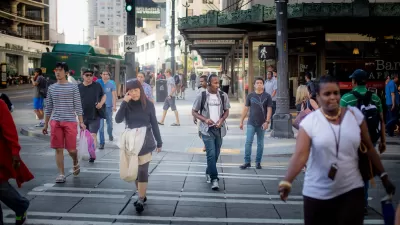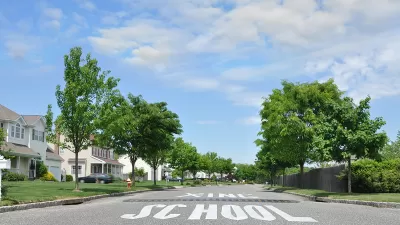A common narrative about Millennials: their preference for urban environments like San Francisco and New York City. To what degree is the stereotype real?

You've probably heard that educated Millennials moved into cities and ruined them for everyone else. Whether or not the last bit of that statement is true, educated Millennials do tend to live in large cities at a higher rate that the balance of the population.
"Nationwide, 25-to-34-year-old college graduates make up 6.4% of the population. In the 100 biggest cities, their (unweighted) average share is 9.3%," according to an article by Justin Fox that crunches data from the American Community Survey to reveal the real urban preferences of educated Millennials.
The article includes a list of the top cities and city-like entities for educated Millennials, calculated as college graduates ages 25-34 as a percentage of total population in 2017, and finds perhaps a few surprises. Leading the group is Arlington, Virginia, followed by Washington, D.C., and then San Francisco. Seattle and Boston round out the top five, though Fox notes that if Manhattan were on the list, it would have come in fifth on the list all by itself.
A list of the same population, on a rolling average between 2013 and 2017 produces even more surprises, listed in order: Hoboken, New Jersey; Somerville, Massachusetts; Cambridge, Massachusetts; Arlington, Virginia; and West Hollywood, California.
The article includes more ways to break down the data, and infographics to illustrate each of the lists.
FULL STORY: Where the Educated Millennials Congregate

Planetizen Federal Action Tracker
A weekly monitor of how Trump’s orders and actions are impacting planners and planning in America.

San Francisco's School District Spent $105M To Build Affordable Housing for Teachers — And That's Just the Beginning
SFUSD joins a growing list of school districts using their land holdings to address housing affordability challenges faced by their own employees.

The Tiny, Adorable $7,000 Car Turning Japan Onto EVs
The single seat Mibot charges from a regular plug as quickly as an iPad, and is about half the price of an average EV.

Seattle's Plan for Adopting Driverless Cars
Equity, safety, accessibility and affordability are front of mind as the city prepares for robotaxis and other autonomous vehicles.

As Trump Phases Out FEMA, Is It Time to Flee the Floodplains?
With less federal funding available for disaster relief efforts, the need to relocate at-risk communities is more urgent than ever.

With Protected Lanes, 460% More People Commute by Bike
For those needing more ammo, more data proving what we already knew is here.
Urban Design for Planners 1: Software Tools
This six-course series explores essential urban design concepts using open source software and equips planners with the tools they need to participate fully in the urban design process.
Planning for Universal Design
Learn the tools for implementing Universal Design in planning regulations.
Smith Gee Studio
City of Charlotte
City of Camden Redevelopment Agency
City of Astoria
Transportation Research & Education Center (TREC) at Portland State University
US High Speed Rail Association
City of Camden Redevelopment Agency
Municipality of Princeton (NJ)





























